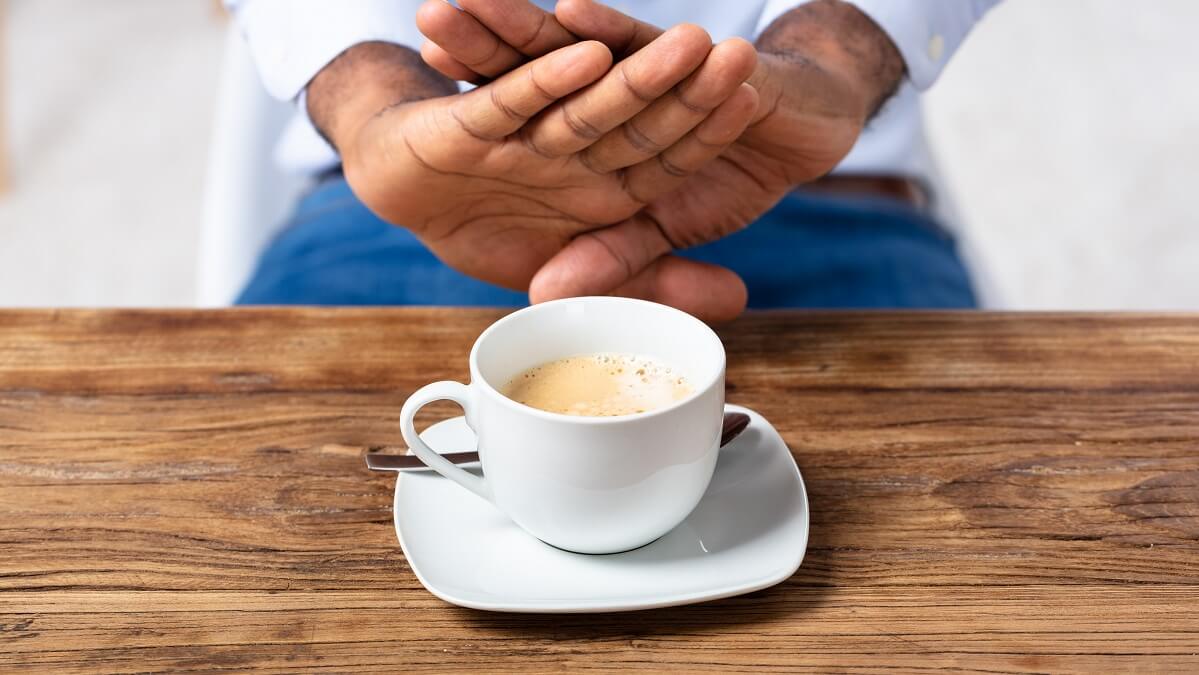I am not what you’d call a morning person. Regardless of the hour, I struggle to get out of bed, and by the time I sit down to work with a fresh long black by my side, about 90 minutes will have passed since my alarm went off.
It turns out that – at least from one health perspective – I’m in the ‘first-coffee sweet spot’ and I’ll have a better night’s sleep as a result.
Here’s what research has uncovered.
While an earlier injection of caffeine would deliver an earlier energy boost, it might cause problems at the other end of the day, when you’re trying to get to sleep.
The science behind this potential problem involves a chemical compound called adenosine, which is naturally produced in our bodies. As counter intuitive as it might seem, having a coffee later rather than earlier in the morning may actually improve your sleep.
One of the things adenosine does is regulate your sleep-and-wake cycle. In normal circumstances, your body will produce increasing levels of adenosine throughout the day, because it’s a by-product of burning energy.
As the day nears its end, adenosine binds to certain receptors in your body. These receptors send a signal to your brain telling you it’s time to slow down and that’s when you’re likely to start feeling sleepy.
So why is having a coffee as soon as you wake a problem?
The way we absorb caffeine can wreak havoc with our bodies, explains Pete Upton, a health and fitness science lecturer for more than a decade.
“The big thing is that caffeine doesn’t give anyone energy … but it does block a receptor in the brain,” he told the ABC.
He explains that caffeine mimics adenosine and allows the same binding process to occur. With that receptor now bound to the caffeine molecules, there’s no room left for the adenosine.
This would not be a problem if caffeine mimicked adenosine to the point where it triggers the same slow-down signal within you. But it doesn’t.
Instead, it simply acts as a kind of placeholder for the real thing. It’s a bit like the display smartphones you might see at your local telecommunications shop. They look like the real thing but aren’t functional.
With the caffeine stopping adenosine from doing its thing, your chances of disrupted sleep come bedtime go up.
However, holding off on that first coffee for 90 minutes and burning a bit of energy first will allow the adenosine your body produces to get in first and eventually trigger the sleep cycle signals that caffeine would not.
The good news is that, if you’re having sleep problems, you do not necessarily need to ditch the morning coffee you crave.
As Mr Upton says, coffee and tea can do us good: “They’re really high in antioxidants and compounds called phenols that do really good things for you.”
But holding off that first coffee of the day for about 90 minutes could be the difference between a solid sleep and a night of tossing and turning.
For people like me, that’s excellent news. Rather than feel guilty about my ability to go from alarm clock to work mode in under 90 minutes, I can now celebrate the fact that I am in fact doing myself good!
That’s very refreshing, not unlike that first long black of the day I’ve just imbibed.
How important is an early morning cup of coffee to you? Would you consider holding off on your first of the day? Why not share your thoughts in the comments section below?
Also read: Seven wellness benefits of caffeine

